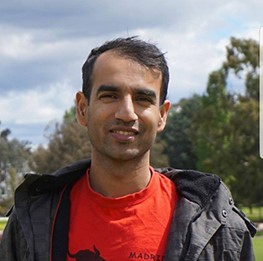Using apps to grow in faith
National
With more people spending more time than ever before on their mobile phones, it’s no surprise to witness a surge in the popularity of Catholic apps as a tool for growing in faith.

Internationally, the prayer app Hallow has been a game-changer, recently becoming the first religious app to be ranked at the top of Apple’s most downloaded apps list. Since its launch in 2018, Hallow has now been downloaded about 14 million times across more than 150 countries.
There are several other popular Catholic prayer apps, such as Laudate, Universalis and Pray As You Go – each designed to provide easy access to prayers and scripture.
Advertisement
In an ever-increasingly global village, such apps are equally helpful and relevant to Catholics overseas as they are to those in Australia, and as a result there appears to be little need to re-invent the wheel and create a specifically Australian Catholic prayer app.
An exception has been the Redemptorist ministry, Majellan Media, which has an app that brings together its various resources including prayers, podcasts and articles, in a simple format.
Only nine Australian dioceses have their own mobile app – Adelaide, Bathurst, Broken Bay, Darwin, Maitland-Newcastle, Perth, Parramatta, Port Pirie and Wollongong. Eight of these dioceses have developed their app with the assistance of Dexterity Solutions, a startup company headed by two Catholics passionate about evangelisation and skilled in IT and IT strategy.

Ginil Fernandez
“The original idea was to be anywhere in Australia and find a Mass time,” he explains.
“The app’s focused on what an everyday parishioner would want to know – can I find the Sacraments, are there any events on, what are the readings of the day, and giving.”
By using the phone’s location and time data, the app alerts users to Mass times nearby, connecting with the diocesan database of parish Mass times. Ginil says each of the eight dioceses use the app differently, with some implementing additional capabilities. The Archdiocese of Adelaide, which has used Dexterity Solutions’ app since 2012, uses a news feed component like Facebook to alert users of feast days via push notifications, for example.
Advertisement
“Adelaide has embraced and communicated the features of the app to the parishioners,” Ginil says. “They’re also sending out push notifications from the app… reminders that connect the Church to the parishioner in a very subtle way during the week when they’re not at church.”
“Our model is really to get this to dioceses at very cost-effective prices,” he says. “I still have a dream of having every single Mass time in Australia on our database, so everyone across the country can get to Mass as easily and as quickly as possible.”
Although diocesan websites are typically the most used source of information when it comes to finding parish Mass times, research has shown that smartphone users spend as much as 88 per cent of their screen time using apps, with only 12 per cent spent using web browsers.
Given such data, it might seem obvious that all Catholic dioceses should have their own app, but there are some challenges that make such a decision less clear.
Firstly, there is the older demographic of Australian Catholic congregations, combined with a long-held attachment to a particular way of communicating information. This could result in limited use of an app.
A second consideration is technical challenges. In Brisbane, Ignite Youth helped to develop a prayer app in 2017 called Fuel, but soon after its launch the overseas developer became bankrupt, leaving Ignite with no way of updating the app. While the team soldiered on for some time, eventually the app became unusable and was removed from the market.
Head of Strategy at Dexterity Solutions, Harry Sorensen, says developing an effective app can be far more complicated than it might appear.
“Some dioceses might have the resources but they struggle to deploy them and they struggle to understand what it takes to build a good product,” he says.
“A lot of them have IT expertise… but the specific expertise around application development, going to market, adoption, user testing – all that kind of stuff – they normally don’t have, and that results in applications that are not that great.”
Nevertheless, for the dioceses that have adopted Dexterity’s technology successfully, the benefits for local parishioners are seemingly enormous.
The Archdiocese of Adelaide’s director of communications Jenny Brinkworth said feedback from parishioners using the app had been overwhelmingly positive.
“The Adelaide Archdiocesan app has been a great success with more than 6,400 people using it for a wide range of purposes from finding a Mass centre to making a contribution to a parish and to special appeals,” she said.
“At a time when fewer people carry cash, the ability to give to the first and second collection via the app has been much appreciated by many parishes in Adelaide. Readings of the day have proven to be very popular, as has the introduction of the ‘saint of the day’, and we have a direct feed into our news portal. There is the added benefit of being able to send notifications to users about events.”
With the number of apps constantly growing, smartphone users are sure to see more Catholic apps available in the future, as the Church continues to use technology to bring people closer to God and to deepen their faith.
This article first appeared in The Bridge newsletter published by the National Centre for Evangelisation.










